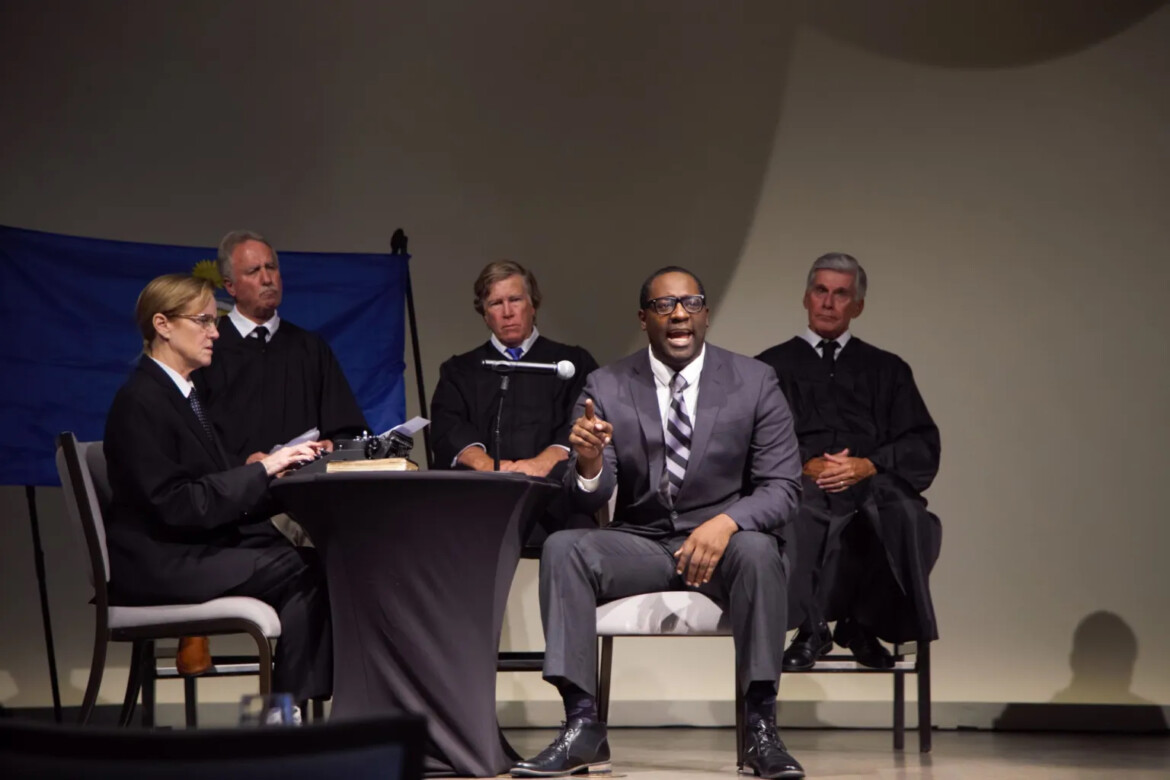Justice Department's Decision: The Fallout From Ending School Desegregation

Table of Contents
The historical context is crucial. The Civil Rights Movement fought tirelessly to dismantle the Jim Crow South's system of legally mandated segregation. The Brown v. Board ruling declared state laws establishing separate public schools for black and white students to be unconstitutional. However, the implementation of desegregation proved a long and arduous process, met with resistance in many communities. Any move to reverse or weaken existing desegregation policies risks undoing hard-won progress and reigniting the flames of inequality. This article argues that the consequences of such a Justice Department's decision would be far-reaching and profoundly detrimental to American society.
The Legal Ramifications of Rolling Back Desegregation Efforts
Supreme Court Precedents and Their Impact
The Supreme Court's jurisprudence on school desegregation is extensive and complex. Brown v. Board of Education established the unconstitutionality of "separate but equal" educational facilities. However, subsequent cases, such as Milliken v. Bradley, dealt with the complexities of implementing desegregation in de facto segregated systems, often resulting in less comprehensive remedies.
- A reversal of current desegregation policies would likely invite numerous legal challenges, potentially leading to a wave of new lawsuits.
- Existing consent decrees and court orders mandating desegregation could be challenged, potentially returning many school districts to a state of de facto segregation.
- The Supreme Court's interpretation of the Fourteenth Amendment's Equal Protection Clause could be significantly altered, affecting not just schools, but other areas of public life.
The Role of Federal and State Laws
Federal laws, like Title VI of the Civil Rights Act of 1964, prohibit discrimination in federally funded programs. State laws also play a significant role in school governance and desegregation efforts. Any change at the federal level would necessitate an intricate legal battleground encompassing the interplay between federal and state jurisdictions.
- Civil rights organizations would undoubtedly mount legal challenges to any attempt to roll back desegregation efforts.
- The enforcement of any new, potentially discriminatory policies would face significant legal hurdles, potentially involving protracted litigation.
- The legal fight would likely extend beyond school districts to encompass the broader issues of racial equality and constitutional rights.
Impact on Affirmative Action Policies
Ending desegregation efforts could significantly impact affirmative action policies designed to address historical and ongoing racial disparities in education. This could lead to further marginalization of minority students.
- The dismantling of desegregation could severely weaken the justification for affirmative action in higher education admissions.
- Arguments against affirmative action, often based on claims of reverse discrimination, could gain more traction in a context where desegregation is weakened.
- The social and political implications would be significant, potentially exacerbating racial tensions and undermining efforts to achieve educational equity.
Socioeconomic Consequences of Resegregation
Increased Racial Segregation in Schools
A rollback of desegregation efforts would inevitably lead to increased racial segregation in schools. This would have devastating consequences for educational outcomes.
- Studies consistently demonstrate a strong correlation between school segregation and lower academic achievement for students of color.
- Racially segregated schools often lack adequate resources and qualified teachers, further disadvantaging students from marginalized communities.
- Increased segregation would likely exacerbate existing achievement gaps and hinder social mobility for generations to come.
Impact on Educational Opportunities
Resegregation would severely limit educational opportunities for students in predominantly minority schools.
- Disparities in teacher quality, curriculum offerings, and access to advanced courses would likely worsen.
- Students in under-resourced schools would have fewer opportunities to participate in extracurricular activities and college preparatory programs.
- This inequality would perpetuate a cycle of poverty and disadvantage, limiting the potential of students from disadvantaged backgrounds.
Long-Term Effects on Social Mobility
The long-term effects of resegregation on social mobility would be profound.
- Data clearly shows a strong correlation between educational attainment and socioeconomic status.
- Increased school segregation would likely widen the existing income gap and perpetuate cycles of poverty.
- Higher incarceration rates and other negative social indicators are often linked to lower educational attainment, which would be exacerbated by resegregation.
Political and Social Backlash
Public Opinion and Political Polarization
A Justice Department's decision to end school desegregation would likely ignite intense public debate and further exacerbate political polarization.
- Public opinion on school desegregation is complex and varies significantly across different demographic groups.
- Media coverage of such a decision would likely be extensive and highly partisan, further fueling the debate.
- The issue would undoubtedly become a central point of contention in political campaigns and elections.
The Role of Civil Rights Organizations
Civil rights organizations would almost certainly respond forcefully to any effort to dismantle school desegregation.
- Major civil rights groups would likely issue strong statements condemning such a decision.
- Mass protests and civil disobedience could be expected, mirroring historical responses to similar injustices.
- Legal challenges to any such decision would be mounted at both the state and federal levels.
Potential for Social Unrest
The potential for social unrest and protests in response to ending desegregation is a serious concern.
- Historical precedents demonstrate the potential for significant social unrest when policies perceived as discriminatory are implemented.
- The potential for violence and other forms of social disruption should not be underestimated.
- Addressing the concerns of all parties through open dialogue and peaceful means is crucial to prevent escalation.
Conclusion: The Long Shadow of the Justice Department's Decision on School Desegregation
The potential ramifications of a Justice Department's decision to end school desegregation are far-reaching and deeply troubling. The legal challenges would be immense, the socioeconomic consequences devastating, and the political and social backlash significant. Ignoring the legal precedents, the socioeconomic disparities, and the potential for social unrest would be a grave mistake. The pursuit of educational equity is paramount. We must stay informed about the Justice Department's decisions and their impact on our communities. Contact your representatives and demand policies that ensure equitable access to quality education for all children. Let’s ensure the fight for desegregation continues and that the pursuit of educational equality for all remains a top priority. This is not just about the Justice Department's decision; it's about the future of our nation.

Featured Posts
-
 Ywm Ykjhty Kshmyr Pakstan Myn Wsye Pymane Pr Tqrybat
May 02, 2025
Ywm Ykjhty Kshmyr Pakstan Myn Wsye Pymane Pr Tqrybat
May 02, 2025 -
 Saudi Abs Market Transformation Impact Of Key Regulatory Changes
May 02, 2025
Saudi Abs Market Transformation Impact Of Key Regulatory Changes
May 02, 2025 -
 Daisy May Coopers Weight Loss And Lip Filler Journey An Honest Account
May 02, 2025
Daisy May Coopers Weight Loss And Lip Filler Journey An Honest Account
May 02, 2025 -
 Glastonbury Stage Times 2024 A Scheduling Disaster
May 02, 2025
Glastonbury Stage Times 2024 A Scheduling Disaster
May 02, 2025 -
 The Rupert Lowe Debate Voices From Great Yarmouth
May 02, 2025
The Rupert Lowe Debate Voices From Great Yarmouth
May 02, 2025
